The role of external factors in Nepali politics has been the talk of the town lately. Once again the political leadership as well as the public have been open to express their opinions in such influence. Lately, most of the talks are directed towards the topics related to Chinese President Xi Jinping’s recent visit and Nepal’s involvement in BRI and also its participation in Indo-Pacific Strategy.
Besides, the rising dissatisfactions in the political parties of Nepal, whether the ones related to the rivalry for the transfer of power within the ruling party or the internal rifts coming to surface in the opposition party Nepali
Congress, are also a hot issue.
In this regard, we have contextualized today’s interview in the issues ranging from the foreign policy, latest political development, the forthcoming general convention of Nepali Congress, the suffocation the groupism is likely to create for the main opposition party to the external influence in Nepali politics while getting the opinion of Dr. Prakash Sharan Mahat, ex-foreign minister and the incumbent Joint General Secretary of Nepali Congress. Excerpts:
The discussions relating to foreign influence in the domestic politics of Nepal are getting momentum. As a former Minister for Foreign Affairs, how do you take such issues?
In foreign policy, we should regard our national interest and requirements as pivotal. When we start wondering at what others may think of us provided we adopt this or that policy, it creates a problem. While pondering at the governing factors of the incumbent government, I feel, the government is unable to heed national interests and national agenda. We have failed to table our agenda logically.
While with the Chinese leadership, we try to incorporate what they want us to include, similarly while we are with the Indian leadership we try to address the things they want us to include for them. We have tried to please them including their agenda, we never stick to our agenda. While dealing with the Americans and other countries and missions we have done the same. Such deals don’t let us stand on our points. These contradicting commitments make us helpless and we lose their trust. The government has been deteriorating the glory, dignity and trustworthiness we used to be known for before. We feel the leadership has failed to lead the country as per the country’s interest. It’s all because it has prioritized personal interests rather than national interests.
While formulating the foreign policy, we should not bother much about the political system a country has adopted, rather we should think about our national interest and the means to promote and address our national interest.
Let me give an example, there came an approach called Indo-Pacific Strategy, actually, it’s not an alliance. While in a meeting with Americans, they (the ruling party leaders) said it was good; but when they met the Chinese delegates, the same leaders said they are not for the Indo-Pacific Strategy. This circulated the chameleon image of Nepali leadership. It is not in the national interest.
The next instance is related to Venezuela. We gave too much space for that issue. We failed to act wisely even while dealing with the country that has neither the economic transactions nor political relations with us. We could not act properly while dealing with the country which has merely a formal diplomatic relation and nothing more.
Generally, while formulating the foreign policy, we should not bother much about the political system a country has adopted, rather we should think about our national interest and the means to promote and address our national interest. In ours, the crux of the foreign policy itself is missing.
There are many lapses now. Recently, in the BIMSTEC Conference, our leadership agreed to take part in the joint military drill of BIMSTEC countries, later it said, ‘We won’t participate.’ Considering such facts, I feel, our foreign policy is not handled properly.
The government has highlighted the Chinese President’s visit as a great achievement. They have started talking about Xi Jinping’s thought, how has Nepali Congress regarded it all?
So far as the visit of the Chinese President is concerned, the invitation for this visit was sent to him when I was the Foreign Minister of Nepal.
He had notified to pay the visit at a convenient time. We are pleased about the visit. It’s a matter of delight to welcome the head of the neighboring country. However, besides the welcome, if we think about our relation with China, Nepali Congress values nation to nation relationship rather than anything else.
In the past, B.P. Koirala had initiated and established a cordial relationship with China during Mao’s regime. We are always for the cordial relationship between the nations. Our foreign policy is guided by the bilateral interests of the nation, not the parties.
Our relation with China, as with others, should be guided by our requirements and our interests, but the incumbent government seems less concerned about this matter. This may not have a good impact in future.
The Chinese leadership is aware of the extent the relationship can grow, they consider the impact of each deal while formulating guiding policies for relationship. They are equally alert about India or other checks and balances of international power.
For them, their national interest is pivotal in building relations with other nations. In fact, every nation does the same, so it is not good to comment on that. But are we regulating our relationship with other nations keeping our national agenda at the center? The trade-deficit between Nepal and China is worth addressing. Nepal has an immense trade deficit with China, it has not got custom-free status while exporting goods to China. We are unable to draw attention to it. The problem is prevalent even in the non-custom-free items. Such issues should have got attention, but they never occurred to us.
It is said that the committee will look after this issue. It’s not a good idea to handle the issue to such a committee when the items which can be exported are already identified. Such issues could have been the subject for discussion to declare ‘zero-custom’ items, however, this is again handed over to the study committee. They merely talk about the train. But the Chinese government is not going to talk about it so haphazardly, it said, ‘It’s time for feasibility study’ only.
Indo- Pacific Strategy includes connectivity, free and fair use of sea-routes etc. What’s wrong if we have an understanding and collaboration for Indo-Pacific Strategy?
But, so far as the long-term interest of Nepal is concerned, we think, expansion of the road network is pivotal. In hills, road transportation is the best both for domestic and international transportation as it’s feasible in low-cost, consumes less time and has a greater and more positive impact.
In Madhesh, the east-west railway is possible in a relevantly small investment, and we are for it. However, trains in the hills are more expensive and less rewarding.
In most of the countries of the world, rail transportation has not been rewarding even in densely populated countries. Nepal is a mountainous country, with a small population, so I don’t think such transportation can benefit much. So far as the trains between Nepal and China is concerned, there has not been any study to determine whether the large numbers of tunnels to be made through the mountains and hills are feasible.
Considering it from an economic point of view, experts say that the transaction and movement between Nepal and China cannot justify such pact. It is very expensive to carry out such projects taking foreign aid or in our own investment.
There are more areas deserving attention. Our other requirements are also in dozens. The pre-requisites, the status of the road network are few to name. We should accept projects according to our priority and requirements.
The loan should be transparent and economic. The government of China knows it better. They have said that unless the trade between India and China is to be executed through the trains in Nepal, the train can be a white elephant to Nepal.
Their interest is trade with India. We should ask them to invest in the railway on their own. We should be in the position to claim a certain fee. Everything should not be presented flimsily to tempt and fool the gullible citizens.
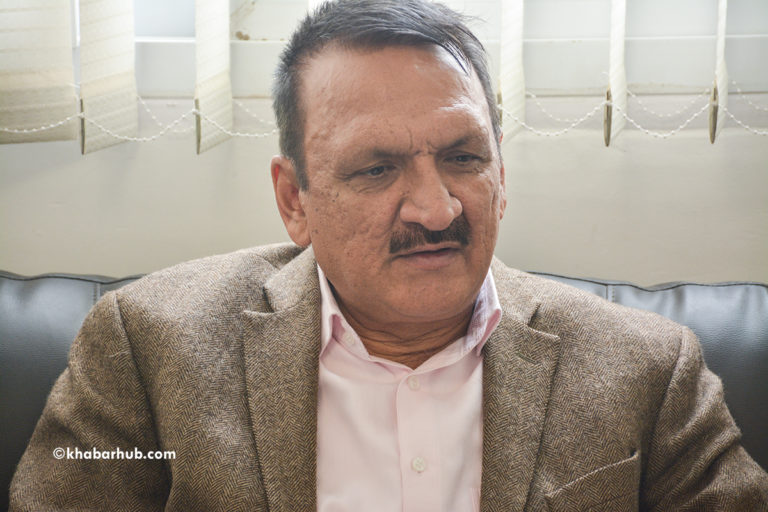
Belt and Road Initiative on the one hand and the Indo-Pacific Strategy on the other, to which it is said that Nepal should get India’s consent and the pact has to be passed from the parliament, are the issues drawing international attention. India’s Nepal perspective and the perspective of America and the European nations is found different, how do you take it?
I made it clear that the foreigners take our deal positively when we are able to convince them of our national interests in them. As they are also concerned about their national interest when Nepal does the same, they take it as something natural.
They feel odd at our irrelevant deals. For example, we made an agreement in BRI, after a long discussion on our requirements, nationals interests and its impacts on our friendly relationship with other nations, we signed the deal in our interests and also did no harm to our friends. We signed the agreement focusing on Nepal-China connectivity and investment.
Similarly, now there is an Indo-Pacific Strategy. What’s there to be so alarmed and panicked? They have made it clear that it is merely a concept. It includes connectivity, the free and fair use of sea-routes, etc. What’s wrong if we have an understanding and collaboration for Indo-Pacific Strategy with our interest at the center?
As we signed a deal in BRI in which we paid enough attention to the concern of our friends, we can do the same while collaborating and participating in Indo-Pacific Strategy. India had a concern in the BRI route linking Pakistan via Kashmir and it did not sign in BRI.
While making an agreement with China, we did not talk about India’s concern. We should not bother much about how China makes the deal while linking it with Pakistan. Then, we said, ‘Our agreement is with the benefits Nepal can get from China’s connectivity and investment, and we signed the deal.’
Similarly, even in Indo-Pacific Strategy also instead of bothering much about what India or other Europeans may get from it, we should think about what we can gain from it. Secondly, we can sign the deal declaring our reservation regarding its impacts on our friends and proclaiming our agenda is our national interest. We need not be undecided in it.
The next thing to think about is ‘Why are we confused in accepting the immense donation the government of America has agreed to provide under Millennium Challenge Corporation? I have understood that it includes the transmission line between Nepal and India.
A transmission line is vital in the trade of electricity. We have been talking about exporting electricity. For the construction of the transmission line, there should be an agreement between the concerned nations. What is objectionable in asking us to seek consent in it? I don’t see any rationale behind the uproar related to whether to accept it or not.
An agreement about theDhalkebar-Mujaffarpurinternational transmission line was made during my tenure as Minister for Energy, after getting other’s support in it, now it’s in implementation. Similarly, when the Gorakhpur-Butwal line is to be constructed, approval of India has to be sought as well. I don’t think seeking consent in such cases is the violation of sovereignty.
Now, let’s change the topic. Nepali Congress had to undergo a bad defeat in the election. In all levels of government, there is the government of the Communist Party; it is said that your party became a victim of groupism within, what do you say about it?
Nepali Congress believes in individual freedom and freedom of expression. Ours is not the party where the cadres have to always abide by the commandments coming from the leadership. There is space for free-will.
We have our constitution, with guiding principles for the party. Those who agree with our principles and ideals are our members. Yes, sometimes, when the principles are defined too liberally, problems may occur. We should work on it. I have expressed my opinion in this regard in my party as well.
It is often said that the main opposition party is unable to come up like a strong and responsible opposition, don’t you think so?
We have been discussing in our party and reached the conclusion that unless we put a particular individual of the party at the center, we cannot execute our responsibility. As an attempt to bridge the gaps between the spirit of our party constitution and our activities, we successfully launched two series of a national awareness campaign. This has circulated the positive vibes in the people.
Soon we are launching the third campaign targeting all 753 local levels. We believed in deeds, we believed in our principles but failed to sensitize people about our achievements. Now, we are working on it as well. We have realized that our focus on deeds and unwillingness to make a show of it has been an opportunity for the incumbent government to claim everything as their achievements. Actually, despite a comfortable two-thirds majority, the government has failed to act rationally and responsibly. Their promises have turned out to be fake. We will make everything transparent for the voters.
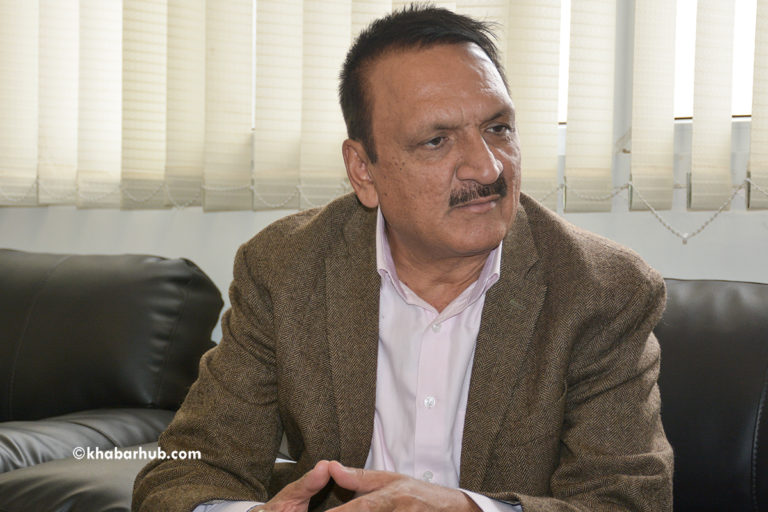
What’s there done during the Congress-led government but credited to the incumbent government?
There are many. The Madhya Pahadi Lokmarga was initiated by us, now they are taking its credit just by renaming it as Puspalal Rajmarga.
There are various tracks and roads linking Chatara, Madhesh to Jhapa and Dadeldhura. We started them, they are naming and taking the credit. The road linking Inner Terai is renamed by them as Madan Bhandari. The Constitution of Nepal, 2015 was drafted and proclaimed under our leadership. We played a leading role in the peace treaty. We laid the foundation for strong diplomacy etc. We initiated many social security schemes as well. But they as a propagandist, cashed our achievements. They are adopting a Leninist strategy of focusing more on propaganda rather than deeds. But now, the people have become smart enough to realize it and we will help the people know it well.
There are rumors about the rifts and rows in the ruling party, are there any strategy to cash it?
We also hear such things in the media. If they have done any secret deals, they know it better. We believe in our deeds and honesty. Yes, it’s true that they have unrest and corruption. They are digging the ditches for themselves. We, as a responsible opposition party, shall aware of the people about their wrongdoings. We are committed to ethics and our guiding principles. We are planning to launch massive awareness campaigns to take their masques off.
We work with the target of winning the coming elections. Provided the government collapses due to internal rifts and rows, we will think in the meantime. Right now we do not have any plan to dismantle them wrongfully, our focus is in winning people’s faith, restoring the glory of our party and ensuring law and order, justice, peace and prosperity in the society. No Communist party has been elected in government in other countries, Nepal became an exception; now we know our strengths and weaknesses, we will overcome our shortcomings and win the people’s favor as, we believe, the prosperity the country deserves is not possible under Communist rule.


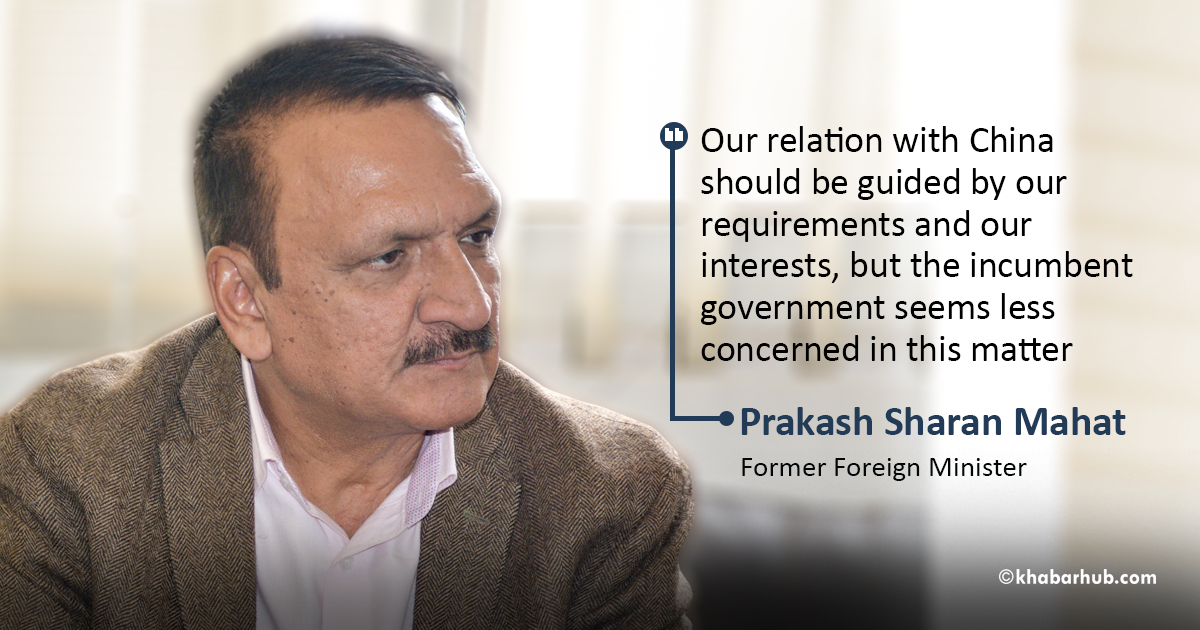
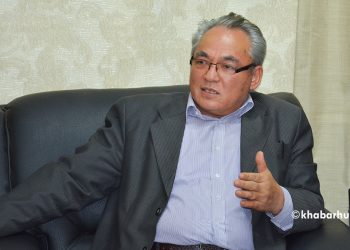
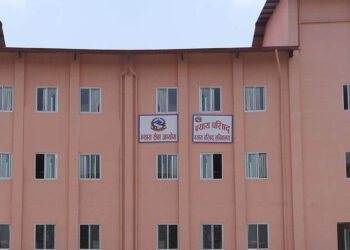
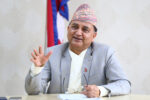


Comment